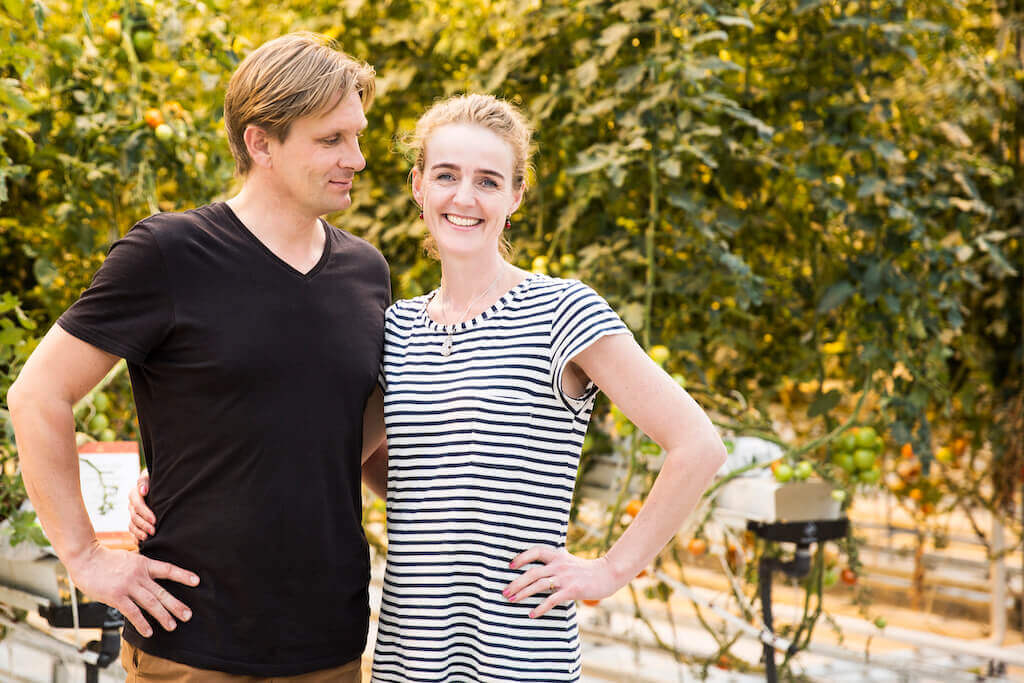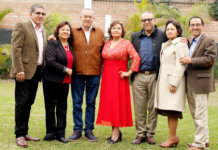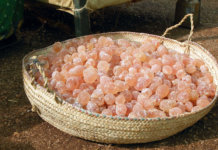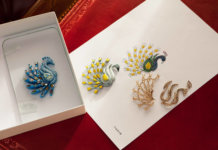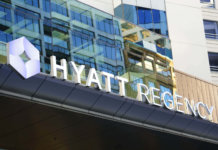Icelandic family business Fridheimar is unique: a restaurant in a greenhouse that serves only tomato-based dishes set against the backdrop of an idyllic horse farm. Knutur Rafn Armann and Helena Hermundardottir, owners and operators of Fridheimar (Icelandic for world peace) have built an extraordinarily successful business based on ethical food and popular demand.
In 1995, the couple purchased some farmland to pursue their individual interests. Knutur started breeding, training and selling horses, while Helena concentrated on horticulture growing superb produce, especially tomatoes. Eventually, people who came to see the horses began asking if they could take a look in the greenhouse. Fridheimar began to develop a distinctive brand of horticultural tourism that has generated an unprecedented amount of public interest. Their centrepiece tomato-dish-only restaurant feeds more than 100,000 people every year.
Recently Tharawat Magazine sat down with Knutur Rafn Armann to discuss Fridheimar’s model for success, tactics for a harmonious working relationship and the evolution of the family business landscape in Iceland.
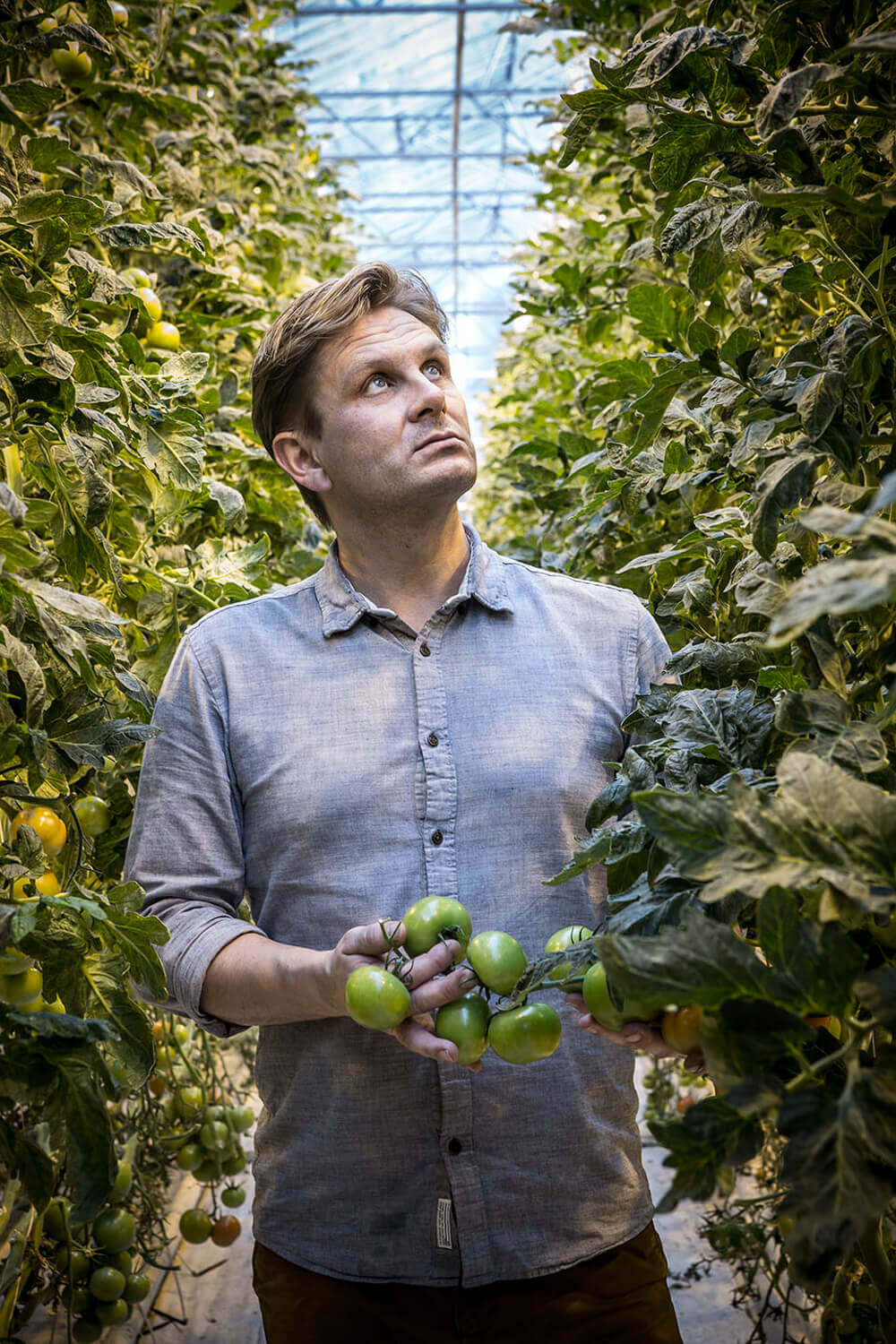
Your business has evolved considerably over the years, how did Fridheimar begin and how did these changes unfold?
We got our start growing tomatoes in a greenhouse. Shortly after, we added cucumbers, sweet peppers, and installed lighting so we could grow produce all year round. We also had horses on the land and so we put on a horse show for the public – it was a seasonal venture that ran every year from April to October. During one of these shows, a customer said, ‘Could we see what you’re doing in the greenhouses?’ We didn’t understand what they could be interested in, but we said sure and opened up the greenhouses as well.
This is where public interest in our tomato-growing operation really started to take off, there were enough guests that we decided it would be prudent to build a bar in the middle of the greenhouse, which eventually became the restaurant we opened in 2013. Initially, we thought of this as our little side business, but very soon, our side business had grown considerably more successful than our primary business, which of course was still growing tomatoes. 2008 was the first year we opened the farm to the public, and we saw about 900 guests. Last year, we had more than 160,000 people visit us. To keep the entire operation running smoothly, we have 40 full-time employees. It certainly has been quite a transformation and we’re incredibly grateful to have enjoyed such unprecedented growth.
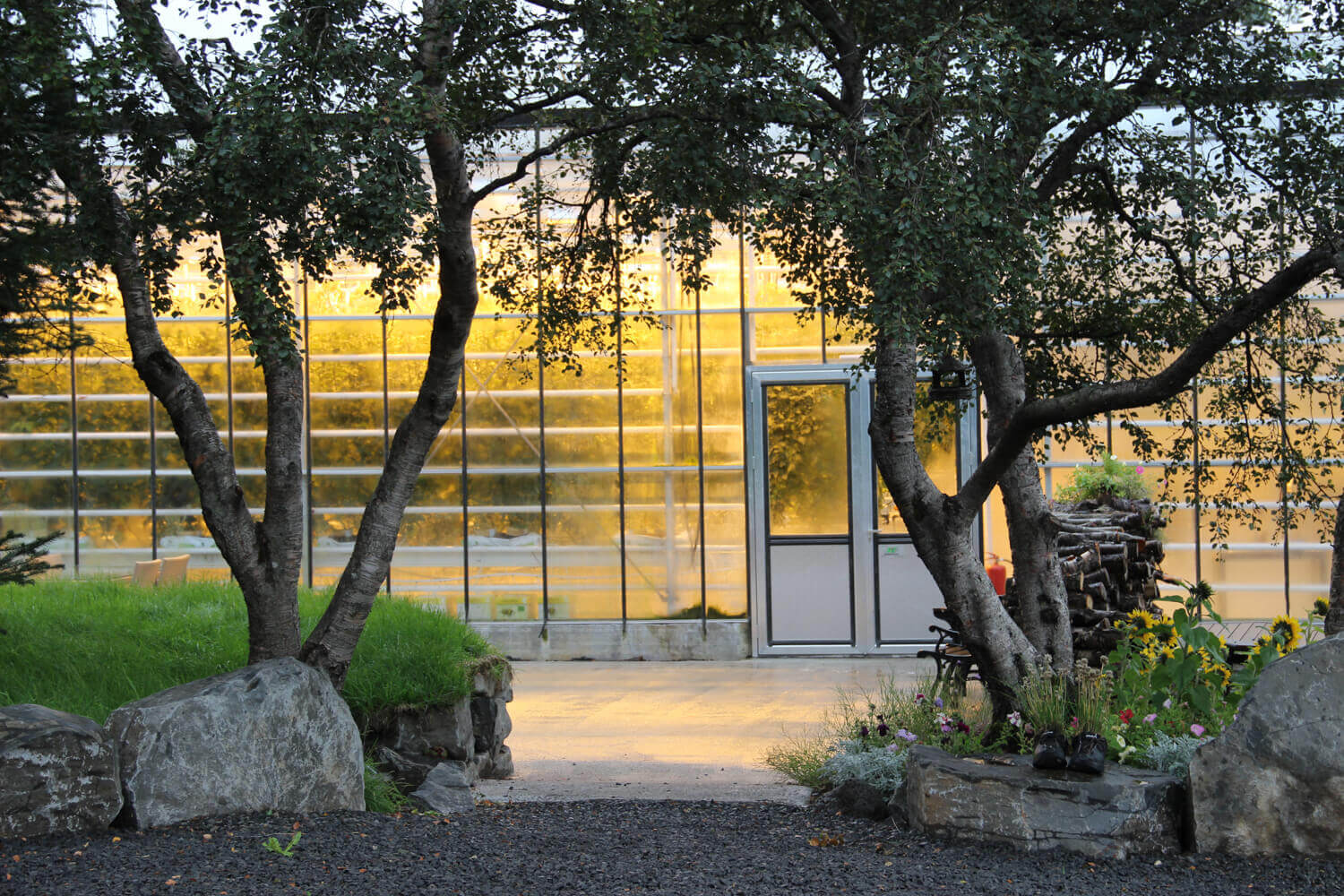
You’ve managed to navigate this process as a husband and wife team, are there any insights you can share regarding healthy working relationships?
We are a tight couple, and we’re used to working very closely with each other. We share similar interests but we’ve always had clear and distinct responsibilities – this is crucial.
In the very beginning, I looked after the horses and Helena took care of the greenhouse. As we added more greenhouses, I offered a helping hand but she’s still in charge. Over the years, we visited various growers in Finland, Norway, and the Netherlands to learn better techniques for greenhouse horticulture. These shared experiences were both great for the business and for us as a married couple.
As Fridheimar expanded, we decided that Helena would continue to focus on the tomatoes and I would take care of the guests. Each of us is familiar with the entire business, but we trust each other to take the lead in specific areas.
Are there any unique challenges that come with operating a horticultural tourism business in Iceland?
The name of the country leads people to assume we’re incapable of growing very much here. When they come to Iceland and realise they can pick tomatoes, cucumbers, sweet peppers, and strawberries all year round, they are pleasantly surprised. They love the way we interact with the island’s volcanic geology by utilising natural geothermal spring water to warm the greenhouses – it’s almost boiling when it’s piped in.
We benefit from our proximity to markets. Tomatoes we pick in the morning can be in the supermarket by the early afternoon. Also, we use technology in a way that people don’t generally expect from farmers: every greenhouse has a computer, which through a proxy is connected to weather stations in the region. As long as I have my phone with me, I can control everything remotely.
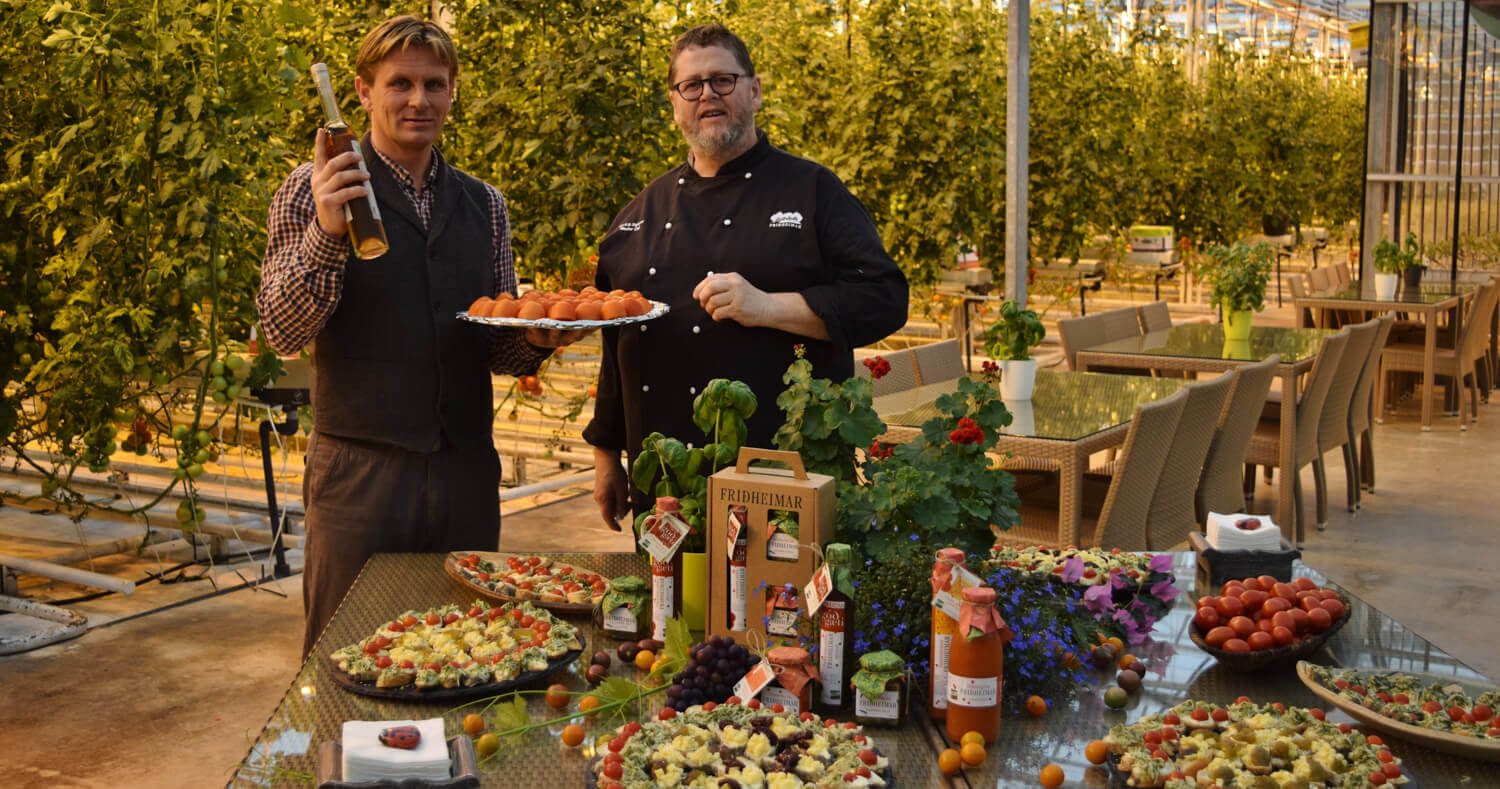
What kind of reactions do you get?
Generally, our customers are interested in the way our operations interface with technology and the environment. They are increasingly thinking about growing or buying organic and sustainable food, and we hear from them quite often. After an evening at Fridheimar, I believe many people go home with a whole new appreciation for where and how their food is grown. With this knowledge, they are more likely to buy something healthy, to buy something local and we feel good about that.
[ms-protect-content id=”4069,4129″]
What does the entrepreneurial and business landscape look like in your area?
We are one of about 23 tomato growers in the region, and we certainly aren’t the only successful operation, there are some other outstanding farmers nearby. However, we are the only open farm, and that makes Fridheimar stand out. We have many repeat customers – people really love sharing the experience and seeing the trajectory the food takes from vine to table.
Do you think climate change will affect your business in a significant way?
From a tourism perspective only, I think the impact of climate change will be negligible. People visit Iceland because of its natural beauty and the landscape will remain the same. Also, I think Iceland will still be a very safe country to visit – our isolation will offer us at least some protection from potential climate-related conflict.
The impact of climate change on the rest of the business will remain to be seen. It’s difficult for me to speculate as so much is out of our hands. We’ll just have to keep moving forward and hope that people continue to appreciate what we do.
Are there many multigenerational family businesses in Iceland?
Yes, there are, however, there are certain industries and horticulture is one example, which do not appeal to young people. Too many in the greenhouse business are nearing retirement and there is nobody there to fill the void or follow in their footsteps.

Have you given any thought to succession and the eventual role of the next generation? Where are you right now in this process?
Our oldest is 22 years old, and she’s just finishing her bachelor’s in business. As soon as she graduates, she’ll continue on to her master’s. She’s worked at Fridheimar every summer holiday and as such, has become an integral part of the company. Our other daughter is 20, and studies business analysis with a special focus on hotel management. We also have three boys, the oldest is 13 and our twins are 10. Right now, they enjoy helping with the horses. It’s truly marvellous to be surrounded by your children at work because you get to know them in a different way than you do at home. I hope they stay at Fridheimar, but for now, we’re just encouraging them to pursue individual goals and gain valuable experience. We’ll have to wait and see if they come back to the business. We hope so.
[/ms-protect-content]


